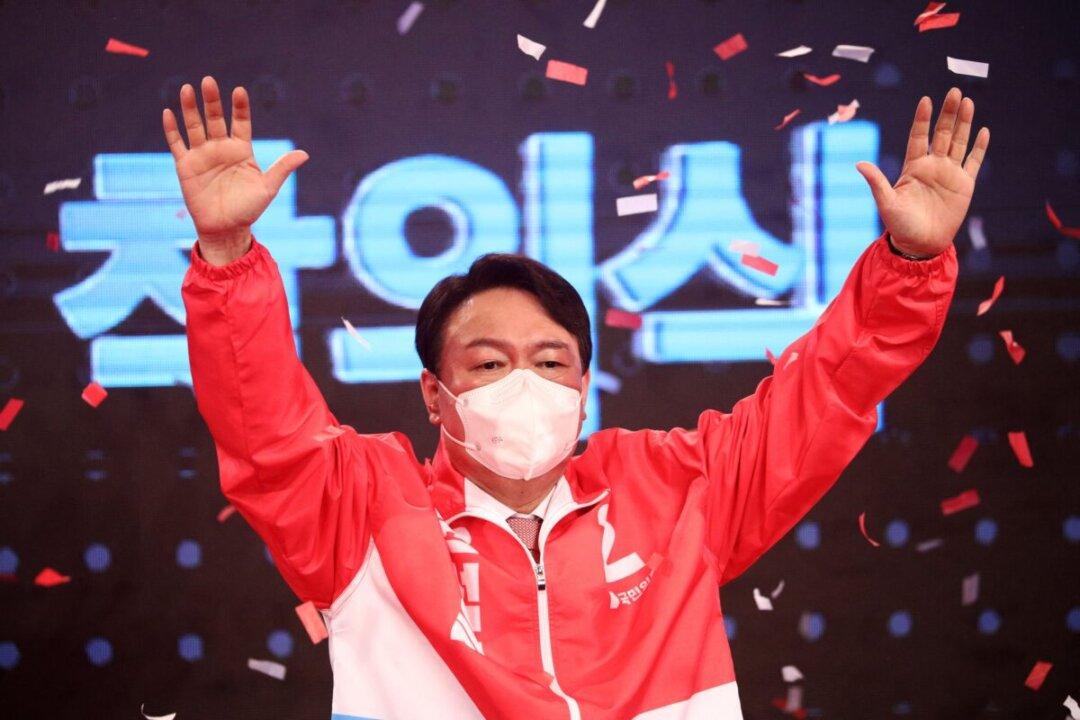With only four months left before the presidential election in South Korea, the People Power Party, the largest opposition party in Korea, recently elected Yoon Seok-youl as the presidential candidate, forming a two-way contest with the ruling party’s candidate Lee Jae-myung. Meanwhile, a Korean poll shows that nearly 60 percent of the public support a change of government.
At the Nov. 5 conference of the People Power Party, Yoon, former chief prosecutor, received 47.85 percent of the votes, defeating three other contenders. Yoon said in his election speech: “This presidential election is not an ordinary one, it is an election for the survival of the country ... I will bring about a change in power and end the politics of division and anger, corruption, and plunder,” reported Chosun Media in South Korea.





